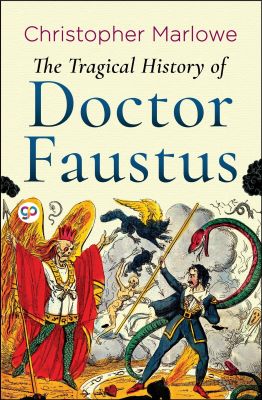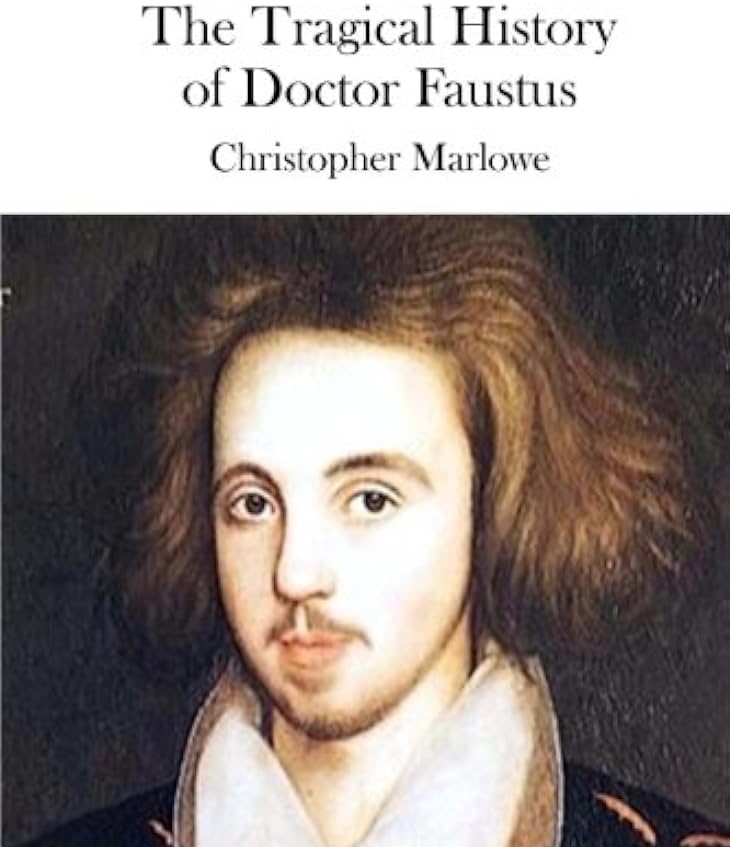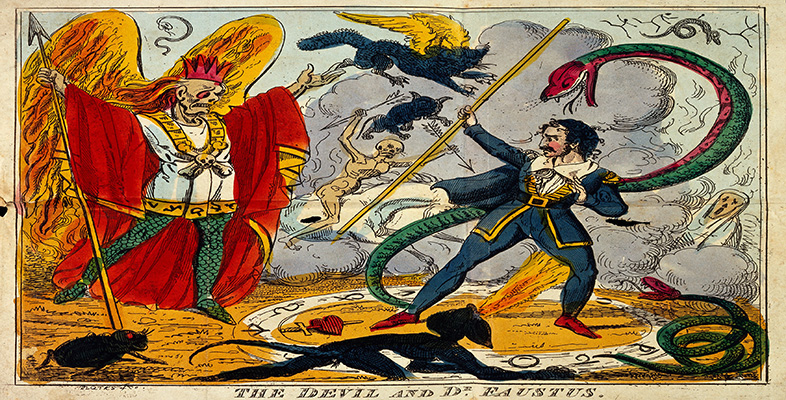
Review of the life of eminent dramatist of Elizabethan Age and his play ‘The Tragical History of Dr. Faustus’
Abdul Sattar Channa
Christopher Marlowe, one of the eminent dramatist of Elizabethan Age, was born in 1564 in Canterbury Kent and died in 1593. There are 2 prominent facts about Christopher Marlowe – one that he was lucky enough to get admission in Oxford even belonging to middle class and second that his fortune turned and got blessed as being the spy of king where he had the privilege to enjoy the company of Noble Class. Both the facts have played vital role in development of his life and career. One led him to become the member of 7 University wits and second provided him opportunity to explore the Noble Class. Similarly these facts helped him to critically analyze and deeply explore the social inferiorities and inequalities.
Marlowe’s plays are full of subjective approach or it could be said that he has portrayed himself in his works. As Christopher Marlowe himself had dual personality (poet as well as spy) so he has characterized his characters with dual personality. The same thing could be seen in Tamburlaine the Great (Play) where the character proclaims “I am lord, for so my deed shall prove; and yet a shepherd by parentage.” This dialogue has depicted the Marlowe’s state of life, that by parentage he was from middle class but his struggle and hard work changed his status. Furthermore, he believed that fate could be changed through struggle as he himself upgraded his status from middle to upper class.
Marlowe is called father of atheism in Renaissance in England. Moreover he is considered the English Rationalist.
In fact, the reader could easily trace Marlowe’s beliefs about God, Religion and Kingship. Marlowe is called father of atheism in Renaissance in England. Moreover he is considered the English Rationalist. As from his multiple characters and use of blasphemous irony it could be easily perceived that he was interested in religious problems and rejected Christian Dogmas.
Here are some of the dialogues from his works:
Jew of Malta: “I count religion but a childish toy”
Dr. Faustus: “A sound magician is a mighty God”
Tamburlaine: “A God is not so glorious as king”
 His vast contribution in English literature earned him the title of Morning Star of Elizabethan Drama. By adopting main character from middle class, he made tragedy matter of character, not caste. His rich contribution in literature could be traced from following statement: “Shakespeare would not have been Shakespeare, if Marlowe had never written or lived. He might not have been altogether the Shakespeare we know today.”
His vast contribution in English literature earned him the title of Morning Star of Elizabethan Drama. By adopting main character from middle class, he made tragedy matter of character, not caste. His rich contribution in literature could be traced from following statement: “Shakespeare would not have been Shakespeare, if Marlowe had never written or lived. He might not have been altogether the Shakespeare we know today.”
Review
The play (Tragedy) is the creation of Christopher Marlowe, one of most prominent Dramatist of Golden Period of English Literature – Elizabethan Age and contemporary of Shakespeare. Writer has enriched the play in multiple ways which has helped the play to stand out among other plays on the top and considered as master piece of English Tragedy. The writer has penned down the play in such a fabulous way that even violating the “Three Unities” and having common plot, it still stands on the top among other tragedies/plays.
The play is enriched in all kinds of Artistic Ornaments as being well balanced and having embellished language. Plus the dialogues are constructed in an amazing way which provide pleasure and revive aesthetic taste in readers. Even with simple plot, the play has fulfilled its purpose and function by arising Catharsis in Audience.
Moreover the Author has enriched the play in terms of use of literary devices; as the use of Allusion, Simile, Metaphor, Allegory, Personification, Adage, Irony, Foreshadowing, Oxymoron and many others. Foregoing figures of speech show the command of author over language and richness of text in terms of diction and language.
The play is written in Blank Verse and divided into 5 Acts and multiple scenes within them. In terms of its plot, the play can be divided into 3 parts as first one is Contract with the Devil and research into cosmology and geography. 2nd one is miraculous travels and displays of conjuring. The Last part deals with death, regret and damnation. Furthermore, the Play has depicted multiple themes based on Human Nature and contextual situations.
There is a prominent adage: “It’s impossible that a piece of text does not represent the personality of Author and Era. Same is the case with this play, as it has depicted the personality of author and the situation of that era. The reader would find so many things and themes related to the Elizabethan age as the author belonged to that age. The play has depicted good number of themes as individualism, good and evil, knowledge and ignorance, choices and consequences, appearance and reality, power as a corrupting source, divided nature of man, human condition, magic and supernatural elements, pride, sin, redemption, damnation and rejection of ancient authorities.
What comes in your mind whenever you hear the word “Tragedy”? Well, most of us would get the jerk of unpleasant events experienced by ourselves. But if you give labor to your delicate mind, it would lead you to the greatest tragedy of all times, the cause of yours and mine existence in this world – “The Fall of Adam” or we would the 2nd most prominent tragedy of all times “The Fall of Satan”. Similarly, this play has depicted the tragic fall of Hero.
 Basically the tragedy is all about a German Doctor named “Faustus” who has 1st completed graduation in Theology and later becomes master in other fields and subjects such as Science, Physics, Medicine, Law and Astrology however he still lacks something and asks himself: “Is not thy common talk found aphorisms?” he says that even his usual talk has become maxims and dictums but what’s it that lacks in him or what would provide his existence worth.
Basically the tragedy is all about a German Doctor named “Faustus” who has 1st completed graduation in Theology and later becomes master in other fields and subjects such as Science, Physics, Medicine, Law and Astrology however he still lacks something and asks himself: “Is not thy common talk found aphorisms?” he says that even his usual talk has become maxims and dictums but what’s it that lacks in him or what would provide his existence worth.
“Yet art thou still but Faustus?” This is where he realizes that even mastering foregoing fields and subjects he is still an ordinary man. This shows his desire for unattainable things.
“A Sound Magician is god” – This dialogue predicts Faustus’s belief about magic. With black art he would be equal to a god and could achieve anything even unattainable things. So he learns to practice Necromancy and summons Mephistopheles (Lucifer’s messenger) and makes contract with Lucifer (Devil/King of hell) through Mephistopheles. Where he sells his soul to Lucifer in exchange of Service of Mephistopheles for 24 years. And the play goes on unfolding the tragic story and leading its main character towards tragic fall.
I would strongly recommend, not only the students of literature but every mere student and reader to read this master piece. It would help them to ignite the spark of reading in themselves. It would make them familiar with Elizabethan age and its literature. And least but not the last, it will provide them the aesthetic pleasure with flourished language and themes related to Human Nature.
_________________